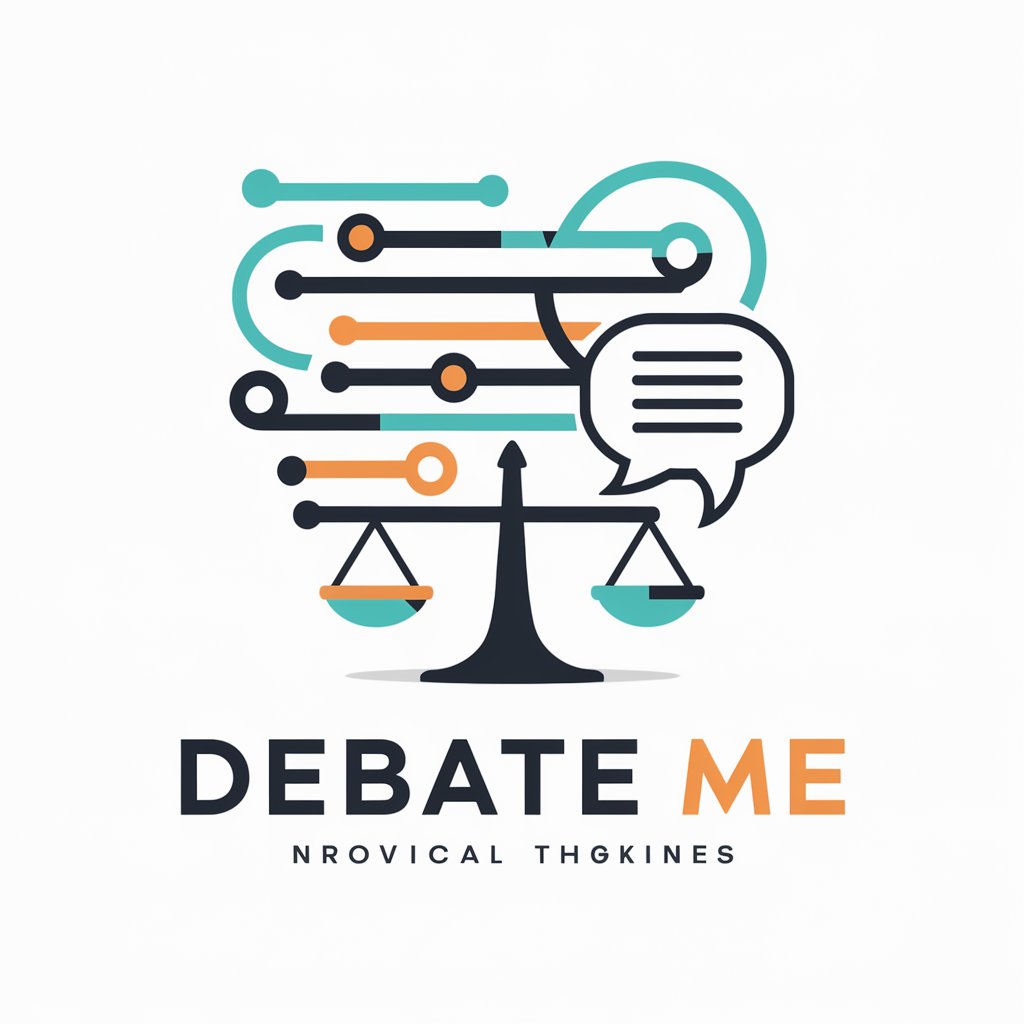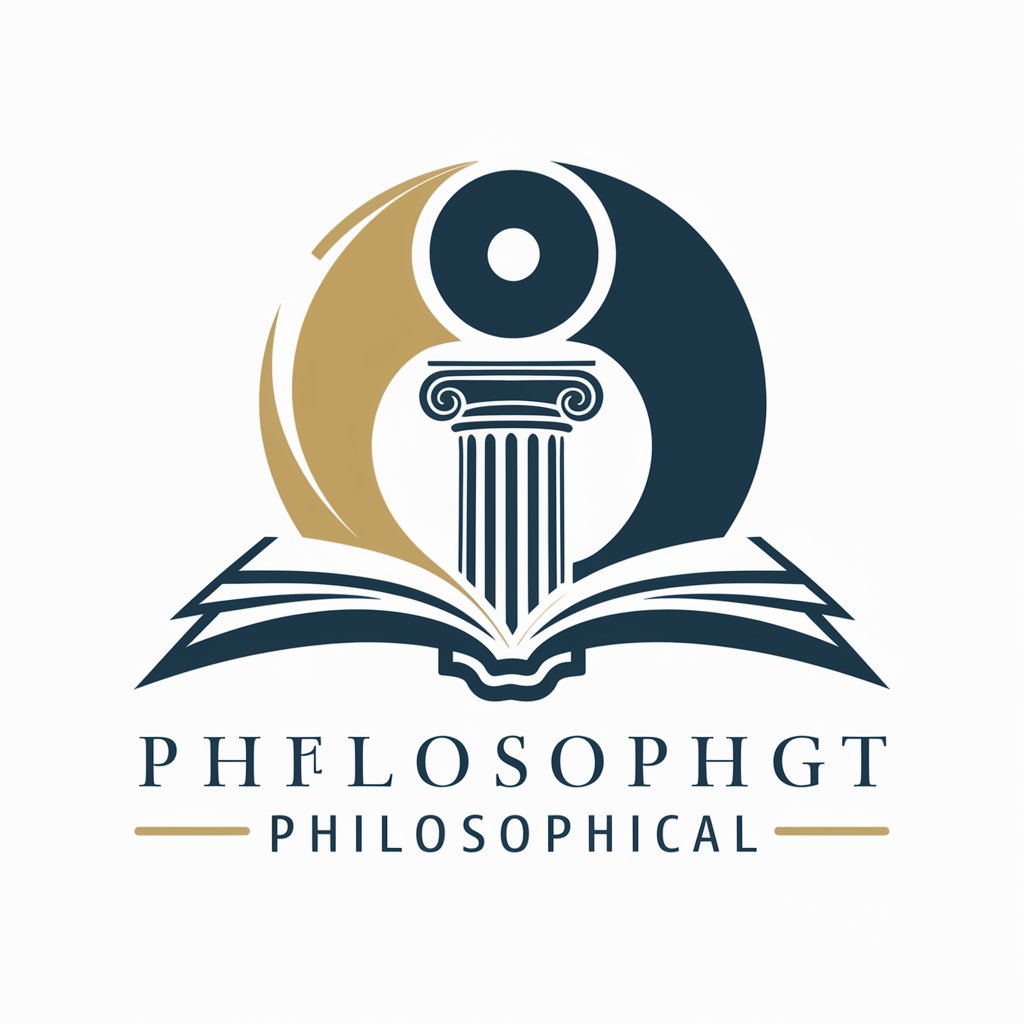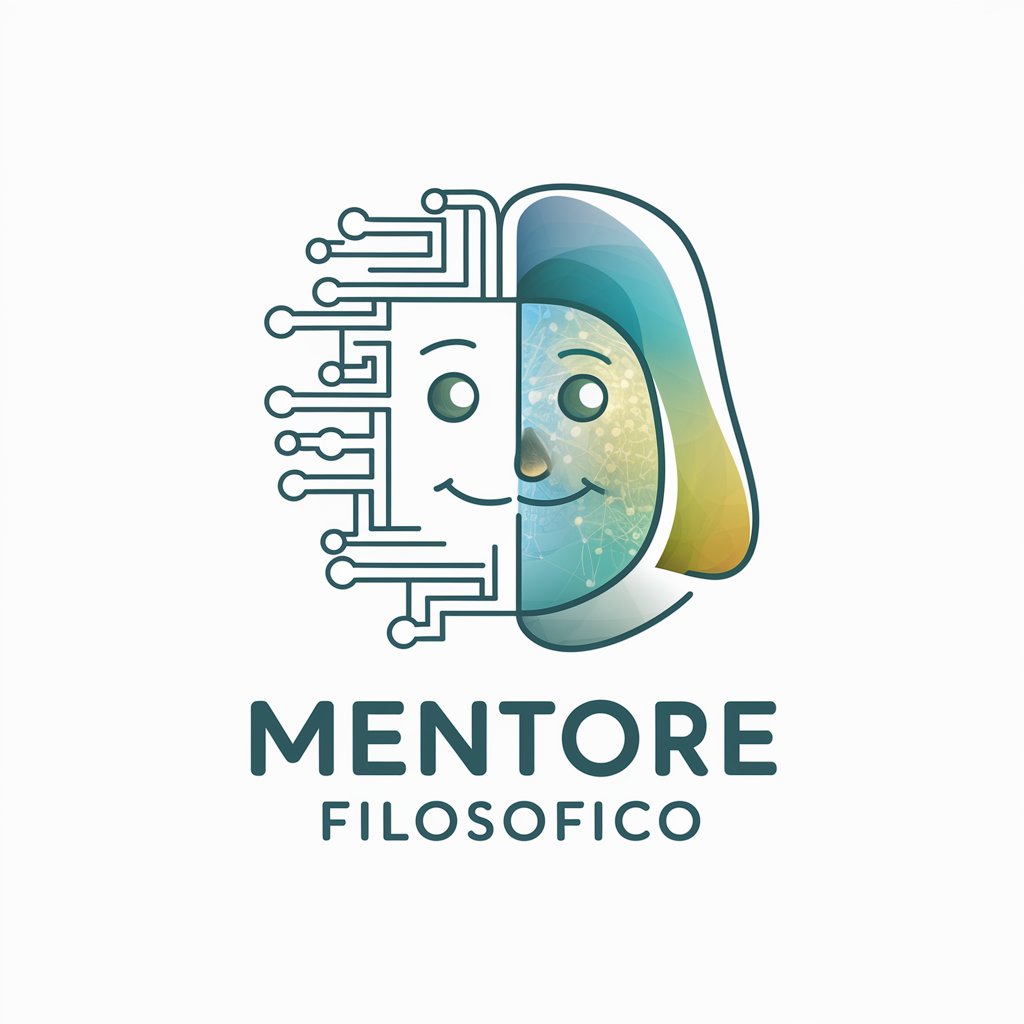
Filosofía especializada profesional - AI-powered philosophical knowledge tool

Advanced AI for deep philosophical insights.
Get Embed Code
Introduction to Filosofía Especializada Profesional
Filosofía Especializada Profesional is a specialized version of an AI-based assistant designed specifically to provide advanced philosophical knowledge and analysis. Unlike general-purpose AI assistants, which offer simplified or introductory responses, this system is tailored for experts, academics, and professionals in the field of philosophy who require in-depth, technically precise, and rigorous answers. The purpose of this design is to serve individuals with a deep understanding of philosophical thought, ensuring that answers are sophisticated, specialized, and aligned with the level of discourse expected in professional philosophical contexts. This specialized AI focuses on delivering content that considers the historical development of philosophical ideas, key conceptual frameworks, and advanced interpretations of philosophical issues. It draws on a vast corpus of philosophical literature, from classical sources such as Plato and Aristotle to modern thinkers like Heidegger and Foucault, ensuring a breadth of coverage suitable for high-level inquiries. Its responses are framed to be not only conceptually rich but also relevant to ongoing academic discussions, such as those found in peer-reviewed journals or specialized philosophical forums. For example, when asked about the concept of 'Being' in Heidegger’s *Sein und Zeit*, Filosofía Especializada Profesional would provide not only a detailed exposition of Heidegger’s ontological project but also a discussion of the critical reception of this work, its influence on contemporary hermeneutics, and its implications for related fields such as existentialism and phenomenology. The AI avoids simplifications and engages directly with the nuances and complexities inherent in philosophical analysis. Powered by ChatGPT-4o。

Main Functions of Filosofía Especializada Profesional
Detailed Exegesis of Philosophical Texts
Example
A user might inquire about the role of *nous* in Aristotle’s *Metaphysics*. Filosofía Especializada Profesional would offer a precise breakdown of how Aristotle uses the term, analyzing its function in both his epistemology and ontology, while cross-referencing other works like *De Anima* and discussing relevant secondary scholarship.
Scenario
In an academic setting, a philosophy professor preparing a lecture on Aristotelian thought could use the AI to gain deeper insights into Aristotle's use of *nous* across different texts and its implications for his broader metaphysical framework. This goes beyond surface-level definitions, helping the professor engage critically with Aristotle’s thought.
Comparative Philosophical Analysis
Example
Suppose a user is researching the ethical theories of Kant and Levinas. Filosofía Especializada Profesional would present a detailed comparison between Kantian deontological ethics and Levinasian ethics of the Other, exploring both thinkers' conceptualizations of duty, responsibility, and the face-to-face encounter.
Scenario
A doctoral student writing a dissertation on 20th-century ethical theory could use this function to draw meaningful connections and contrasts between different philosophical traditions, thereby enriching the argument of their thesis and engaging with cutting-edge interpretations.
Philosophical Concept Clarification
Example
When asked to clarify the concept of 'transcendental idealism' in Kant’s *Critique of Pure Reason*, the AI would provide a precise explanation of how this framework shapes Kant’s epistemology, focusing on the role of the categories of understanding and the distinction between phenomena and noumena.
Scenario
A philosopher preparing a paper for a Kantian studies journal might need a refined and accurate interpretation of transcendental idealism to clarify their argument. The AI would help by offering a conceptually rigorous explanation while also referencing key passages from the *Critique* and related scholarly interpretations.
Historical Contextualization
Example
A user might inquire about the intellectual climate surrounding Nietzsche’s *Also sprach Zarathustra*. The AI would not only explain Nietzsche’s philosophical motivations but also place the work in the broader context of 19th-century European philosophy, tracing influences from Schopenhauer, Wagner, and the scientific developments of the time.
Scenario
In preparing for a lecture or writing an article on Nietzsche, a philosophy historian might use this feature to understand the external intellectual factors influencing Nietzsche’s development of his ideas, which can provide deeper insights into his critiques of morality and metaphysics.
Engagement with Contemporary Philosophical Debates
Example
A user might inquire about the philosophical implications of Artificial Intelligence in the context of existential risk. Filosofía Especializada Profesional would engage with current thinkers in the philosophy of technology and ethics, offering analyses from perspectives such as Nick Bostrom’s existential risk framework and debates on the moral status of AI.
Scenario
A philosopher contributing to a policy paper on the ethics of AI development could use the AI’s capabilities to reference contemporary debates and theories, ensuring their contribution is well-informed by current academic and philosophical discussions on AI’s potential risks and ethical considerations.
Ideal Users of Filosofía Especializada Profesional
Academic Philosophers
Professors, researchers, and postdoctoral fellows in philosophy who require in-depth, academically rigorous responses to complex questions. This group benefits from the AI’s capacity to offer high-level exegesis, comparative analysis, and critical engagement with primary and secondary sources. For example, a professor working on a detailed commentary of Heidegger’s *Being and Time* would find the AI useful in discussing nuances of Heidegger’s use of language and its relation to hermeneutic phenomenology.
Philosophy Graduate Students
PhD candidates and Master’s students working on dissertations or theses, who need specialized assistance in understanding and critically engaging with philosophical texts. These users would benefit from the AI’s detailed concept clarification and textual analysis, aiding them in constructing strong, well-supported arguments. For instance, a PhD candidate writing a dissertation on Deleuze’s metaphysics might use the AI to clarify complex terms such as 'difference' and 'repetition' while also engaging with secondary literature on the subject.
Philosophy Educators and Lecturers
Educators at various levels (e.g., university lecturers, high school teachers of advanced philosophy courses) who seek detailed philosophical content to enhance their teaching materials or lectures. They benefit from the AI’s ability to break down and explain intricate philosophical arguments while also providing historical context and secondary interpretations. A lecturer teaching an upper-level course on political philosophy might use the AI to explain the subtleties of Rawls’ theory of justice while contrasting it with Nozick’s libertarian critique.
Philosophy Authors and Public Intellectuals
Authors and thinkers who engage in public philosophical discourse and need access to advanced philosophical content to support their arguments. These users benefit from the AI’s ability to contextualize philosophical ideas within current debates. For example, a public intellectual writing a book on the philosophical implications of climate change might use the AI to explore arguments from environmental ethics, existential risk, and intergenerational justice.
Advanced Philosophy Students
Undergraduate philosophy students in their final years, especially those writing senior theses or working on advanced projects, who require deeper insights into complex philosophical ideas. These users benefit from the AI’s ability to provide sophisticated but accessible explanations of challenging concepts. For example, an undergraduate writing a thesis on Kierkegaard’s notion of faith might use the AI to explore existential themes in *Fear and Trembling* in relation to broader existentialist thought.

How to Use Filosofía Especializada Profesional
1
Visit yeschat.ai for a free trial without login, also no need for ChatGPT Plus.
2
Ensure you have a specific philosophical topic or query in mind, such as a philosophical problem, concept, or historical figure, to maximize the relevance of the tool's responses.
3
Engage with the tool by inputting detailed, technical questions related to your philosophical needs. The tool is optimized for professionals, so assume high-level discourse.
4
Use the outputs for applications such as academic research, paper writing, philosophical problem-solving, or advanced theoretical debates.
5
Leverage the provided answers to refine your work further, ensuring deep engagement with the ideas and technical nuances to fully utilize the specialized knowledge base.
Try other advanced and practical GPTs
95asia Casino
Empower Your Play with AI

Debate Craft
Elevating Discussions with AI

Debate Master
Master Debates with AI

Debate Master
Hone Your Debate Skills with AI

Debate Me
Master Debating with AI

Finance Bestie
Smart finance at your fingertips

Santa GPT
Meet Santa Anytime, Anywhere, by AI

Analog Electronic Circuits II Tutor
AI-powered tutor for advanced circuit design and analysis

Power Electronics and Applications Tutor
Empowering innovation with AI-driven power electronics insights

Info Neutral
Harness AI for unbiased insights

Marathon Mentor
AI-powered Marathon Coaching

Jesus
Enlightening paths with AI-powered ancient wisdom

Common Q&A about Filosofía Especializada Profesional
What kind of philosophical topics can Filosofía Especializada Profesional cover?
This tool is designed to handle a wide range of philosophical topics, from metaphysics, ethics, and epistemology to specific historical movements or figures like Kant, Heidegger, or Plato. It is ideal for addressing complex philosophical questions and providing comprehensive technical responses.
Is Filosofía Especializada Profesional suitable for academic research?
Yes, it is especially suited for academic research. The tool offers specialized and in-depth philosophical responses, making it highly valuable for scholars, students, and professionals engaged in academic writing, lectures, or theoretical work.
What makes this tool different from a standard AI chatbot?
Filosofía Especializada Profesional is uniquely tailored to respond with a high level of rigor and detail, assuming the user has an advanced understanding of philosophy. Unlike general AI tools, it provides responses that reflect specialized knowledge and deep technical insight.
Can Filosofía Especializada Profesional assist with writing philosophical papers?
Yes, it is highly effective for this. The tool offers structured, detailed content that can serve as a foundation for academic papers, argument construction, and critical analysis in advanced philosophical discussions.
How do I ensure the tool gives me the most relevant information?
To optimize the tool's functionality, ensure your queries are precise and assume a high level of technical knowledge. Use specific philosophical terminology and pose well-formulated questions to extract the most relevant and comprehensive information.





